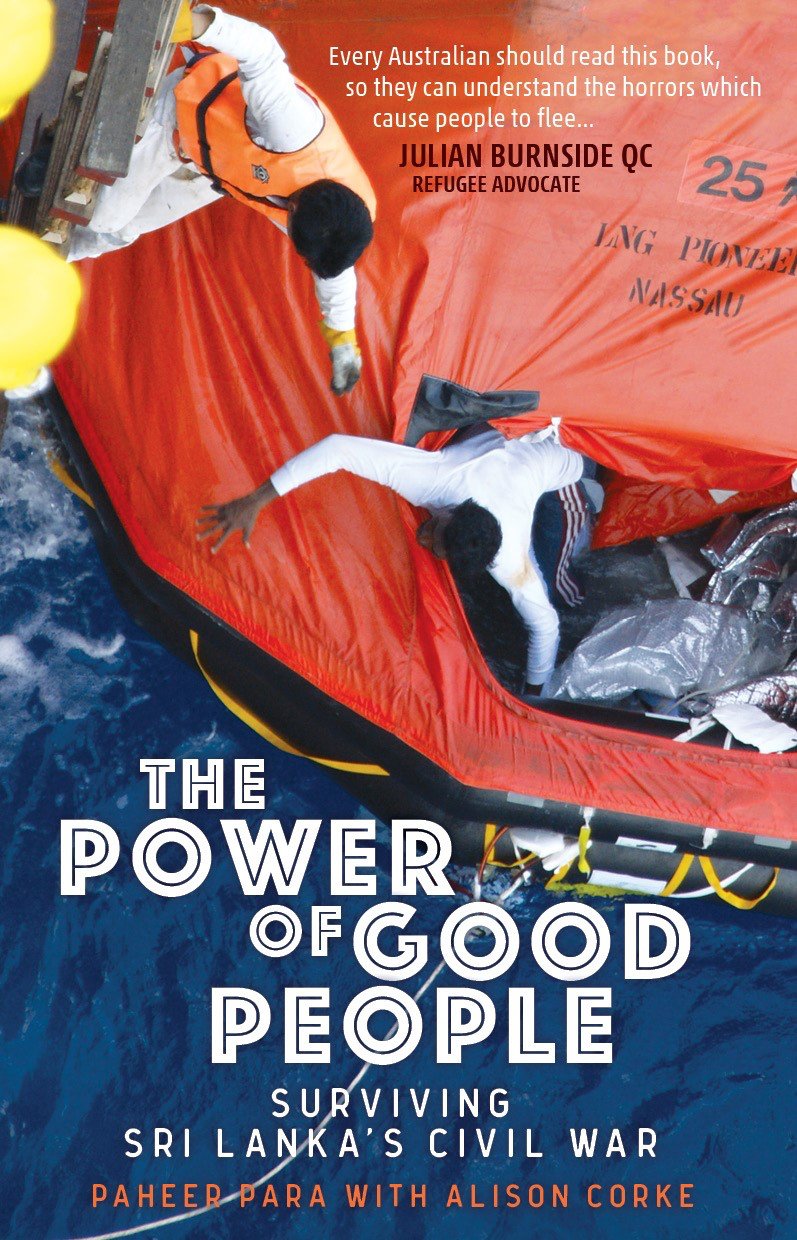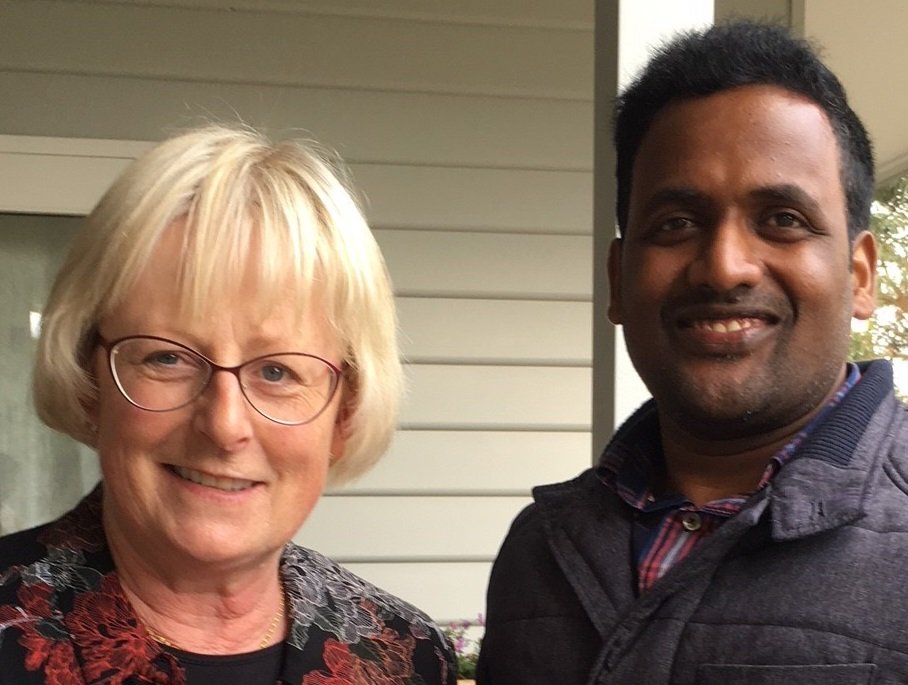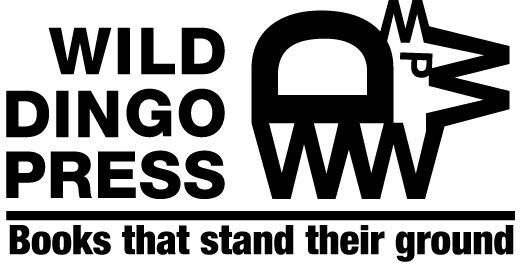 Image 1 of 2
Image 1 of 2

 Image 2 of 2
Image 2 of 2



The Power of Good People: Surviving the Sri Lankan Civil War
Para Paheer with Alison Corke
In May 2009 Sri Lanka’s long and dreadful civil war was finally brought to an horrific end. Ruthlessly driven to a small strip of land on the tip of the island’s north-east coast, tens of thousands of innocent civilians died, smashed by artillery, killed by snipers, denied medical treatment and starved to death beneath the baking sun.
This ferocious battle consolidated and highlighted the terrors of the preceding twenty-six years of war, characterised by torture, vicious murders and desperate acts from both sides. In such a cruel war, was there any room for humanity?
This is the story of an impoverished young Tamil growing up during one of the modern world’s longest conflicts. A child when the war began, Para grew up to become a student leader who was targeted, captured and tortured by the Sri Lankan government. Fleeing to seek asylum in Australia, after a gruelling month at sea his boat capsized in the middle of the Indian Ocean. All seemed lost until he was miraculously rescued by the gas tanker LNG Pioneer and taken to Christmas Island Detention Centre.
While in detention, Para became penfriends with Alison Corke, a member of the Apollo Bay branch of Rural Australians for Refugees, in Victoria. On his release in 2011 he moved in with the Corke family.
“From our first letters, exchanged while Para was in detention and trying to improve his English, I knew he was an exceptional young man, with an astonishing tale to tell.
I am proud to be helping him share his story and to find and thank those people who helped him survive, often against massive odds…Time and again, Para and I agreed that it is the little things that matter most – those small, often unremembered acts of kindness that can change someone’s world. We all have the power to do something; only we can choose whether to use that power for the good.”
—Alison Corke
This is their story, the story of refugees, friendships and the power of good people.
Para Paheer with Alison Corke
In May 2009 Sri Lanka’s long and dreadful civil war was finally brought to an horrific end. Ruthlessly driven to a small strip of land on the tip of the island’s north-east coast, tens of thousands of innocent civilians died, smashed by artillery, killed by snipers, denied medical treatment and starved to death beneath the baking sun.
This ferocious battle consolidated and highlighted the terrors of the preceding twenty-six years of war, characterised by torture, vicious murders and desperate acts from both sides. In such a cruel war, was there any room for humanity?
This is the story of an impoverished young Tamil growing up during one of the modern world’s longest conflicts. A child when the war began, Para grew up to become a student leader who was targeted, captured and tortured by the Sri Lankan government. Fleeing to seek asylum in Australia, after a gruelling month at sea his boat capsized in the middle of the Indian Ocean. All seemed lost until he was miraculously rescued by the gas tanker LNG Pioneer and taken to Christmas Island Detention Centre.
While in detention, Para became penfriends with Alison Corke, a member of the Apollo Bay branch of Rural Australians for Refugees, in Victoria. On his release in 2011 he moved in with the Corke family.
“From our first letters, exchanged while Para was in detention and trying to improve his English, I knew he was an exceptional young man, with an astonishing tale to tell.
I am proud to be helping him share his story and to find and thank those people who helped him survive, often against massive odds…Time and again, Para and I agreed that it is the little things that matter most – those small, often unremembered acts of kindness that can change someone’s world. We all have the power to do something; only we can choose whether to use that power for the good.”
—Alison Corke
This is their story, the story of refugees, friendships and the power of good people.
Para Paheer with Alison Corke
In May 2009 Sri Lanka’s long and dreadful civil war was finally brought to an horrific end. Ruthlessly driven to a small strip of land on the tip of the island’s north-east coast, tens of thousands of innocent civilians died, smashed by artillery, killed by snipers, denied medical treatment and starved to death beneath the baking sun.
This ferocious battle consolidated and highlighted the terrors of the preceding twenty-six years of war, characterised by torture, vicious murders and desperate acts from both sides. In such a cruel war, was there any room for humanity?
This is the story of an impoverished young Tamil growing up during one of the modern world’s longest conflicts. A child when the war began, Para grew up to become a student leader who was targeted, captured and tortured by the Sri Lankan government. Fleeing to seek asylum in Australia, after a gruelling month at sea his boat capsized in the middle of the Indian Ocean. All seemed lost until he was miraculously rescued by the gas tanker LNG Pioneer and taken to Christmas Island Detention Centre.
While in detention, Para became penfriends with Alison Corke, a member of the Apollo Bay branch of Rural Australians for Refugees, in Victoria. On his release in 2011 he moved in with the Corke family.
“From our first letters, exchanged while Para was in detention and trying to improve his English, I knew he was an exceptional young man, with an astonishing tale to tell.
I am proud to be helping him share his story and to find and thank those people who helped him survive, often against massive odds…Time and again, Para and I agreed that it is the little things that matter most – those small, often unremembered acts of kindness that can change someone’s world. We all have the power to do something; only we can choose whether to use that power for the good.”
—Alison Corke
This is their story, the story of refugees, friendships and the power of good people.
-
2017 | 9780648066323 | 296 pages | Paperback | 210 x 135 mm | Memoir
-
refugees, displaced people, Sri Lanka, civil war, battle, torture, war, humanity, conflict, penfriends, friendship, power of good people
-
-
Praise for The Power of Good People:
‘An uplifting collaboration that reveals how random acts of kindness can turn a story of trauma, torture and tragedy into one of hope.’
— Michael Gordon, Award-winning journalist and former political editor of The Age
‘Amid the polemics of the political debate about asylum in this country, it is too easy to forget that, at the very heart of this issue, lies not some political theory, some abstraction, but people. This issue is not about boats to be stopped nor borders to be protected, it is not about ‘illegals’ jumping queues nor national security. It is about people. People like Para.’
— Ben Doherty, Immigration correspondent, The Guardian, former South Asia correspondent, The Sydney Morning Herald
‘One of the most touching elements in this extraordinary story is Para’s chance friendship with an Australian grandmother who takes him into her family. This book is a collaboration between them and a powerful example of how people can really connect across cultures, class, age and gender to do good where politicians and bureaucracies have failed. I highly recommend it.’
— Frances Harrison, Author of Still Counting the Dead: Survivors of Sri Lanka’s hidden war
‘Para Paheer’s lived experience combines conflict, suffering, courage, tragedy, compassion, and hope. It depicts events that are predatory and abominable, even as it celebrates the humane and good. It must be read, precisely because it is heart-wrenching; because the discomfort it elicits may goad us to abandon apathy, embrace sympathy, and thereby discover our common humanity.’
—Professor Neil DeVotta, Department of Politics and International Affairs, Wake Forest University
‘This is a deeply personal and moving story of human resilience, patience, compassion and gratitude. May it move others to empathy and provide insight into the desperate circumstances which force a person to flee their home and become a refugee. Accounts like these are so important in changing Australia’s inhumane immigration policies.’
— Senator Richard Di Natale, Leader of the Australian Greens
‘Ali’s voice is calm, factual, avoids hysteria, and is all the more compelling for this. I’ve read other stories of trauma, such as Anne Frank’s Diary, The Rugmaker of Mazar-e-Sharif, and I am Malala. This book belongs up there with them.’
— Dr Bob Rich, writer and psychologist
‘This is a fascinating and important story for those interested in Australia’s migration policy. It is told directly and openly by someone directly affected and it will without doubt have a big impression on all who listen. Do not miss Para’s story.’
— Dads on the Air
‘I have read quite a few refugee memoirs … this one is gripping, and it’s amazing to think that it all began with a kind-hearted gesture – Alison Corke becoming a pen pal to a refugee in a detention centre. I recommend that you read the book.’
— Lisa Hill, ANZ LitLovers
Para was barely five years old when civil war erupted in Sri Lanka. Nearly three decades later it ended in appalling horror and bloodshed. Tens of thousands of innocent civilians died. Survival required courage, ingenuity – and the kindness of strangers. This is Para’s story of survival against all odds
“Every Australian should read this book, so they can understand the horrors which cause people to flee…”
More from Para:
Listen to Part 1 and Part 2 of Para’s interview on SBS Tamil Radio, and Dads on the Air. Read the articles on SBS Life Online and The Guardian.
More from both Para and Ali:
Listen to their interview or read the article on ABC Radio National Life Matters. Listen to their interview on Radio New Zealand or Radio Adelaide’s The Wire. Read their feature in The Age’s The Two of Us.

Para Paheer (Paheertharan Pararasasingam) was born in 1978 into extreme poverty in a low caste Tamil family of farmers in northern Sri Lanka. He was just five years old when civil war erupted and engulfed the country for nearly three decades. Read more.
A career in advertising and publishing taught Alison Corke the importance of telling a story in an honest and engaging way, encouraging people to have the confidence to share their lives. The author of several books on advertising and public relations, Ali also wrote books for The Body Shop and British Airways, and has produced many publications for non-profit organisations. Read more.
